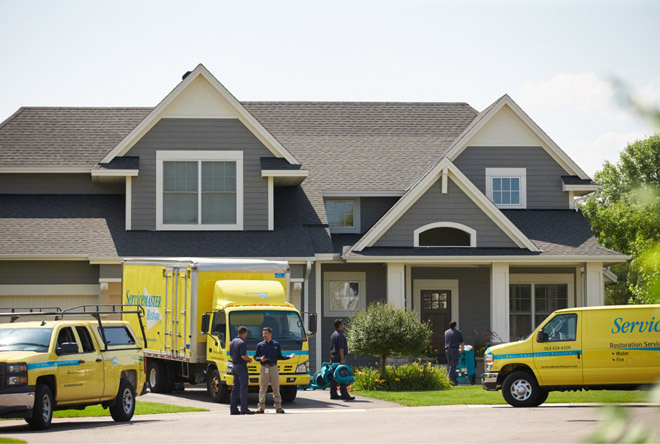Mold Removal | The Different Types of Mold in Your Home
Mold Removal | Many people think that mold only grows in homes that are old or not cared for, but this is not the truth. Eleven different types of common molds can grow in your home. None of them are great to have around, and you may want to call ServiceMaster for mold removal services.
Alternaria is one of the most common molds and is found in damp areas such as sinks, showers, and tubs. This type of mold can cause allergic reactions and asthma attacks.
Aspergillus mold is quite common but usually does not cause severe reactions.
Aureobasidium grows on wood furniture and surfaces, walls, and wallpapers as well as window trim, siding, and in caulk. This type of mold is spotty and can cause severe allergic reactions.
Chaetomium is a mold that grows in drywall after water damage. Chaetomium gives off a musty smell.
Cladosporium is often found inside the carpet, floorboards, cabinets, and old fabric. When mold removal does not occur, this type of mold can cause respiratory problems.
Fusarium grows in the cold, damp areas of the home such as the basement and flourishes in the carpet.
Penicillium tends to grow in insulation, water damaged furniture and carpet and spreads rapidly, causing sinus infections, breathing problems, and inflammation. Some people can be severely allergic to penicillium also.
Stachybotrys Chartarum is black mold, also called toxic mold. Black mold can be deadly and cause severe asthma attacks, respiratory illness, depression, fatigue, and flu-like symptoms. Black mold is common in places that stay damp such as around refrigerators, A/C units, pipes, and ductwork, or after flood damage. If you have this type of mold in your home, you need professional mold removal services.
Serpula Lacrymans is not typically found indoors but can grow on wood furniture and lead to dry rot. This mold appears yellowish.
Trichoderma mold loves damp areas and is common in carpeting and wallpaper. Like black mold, Trichoderma contains mycotoxins that can cause severe respiratory illness.
Ulocladium is found in severe water damaged areas such as basements that have been completely flooded. Homeowners can have severe allergic reactions to this type of mold.
It is important to know that touching mold can cause spores to become airborne, which means you’ll inhale them and that the mold can spread. If you believe you have a mold problem in your home, you should call ServiceMaster of Charleston at 843-806-0982.


